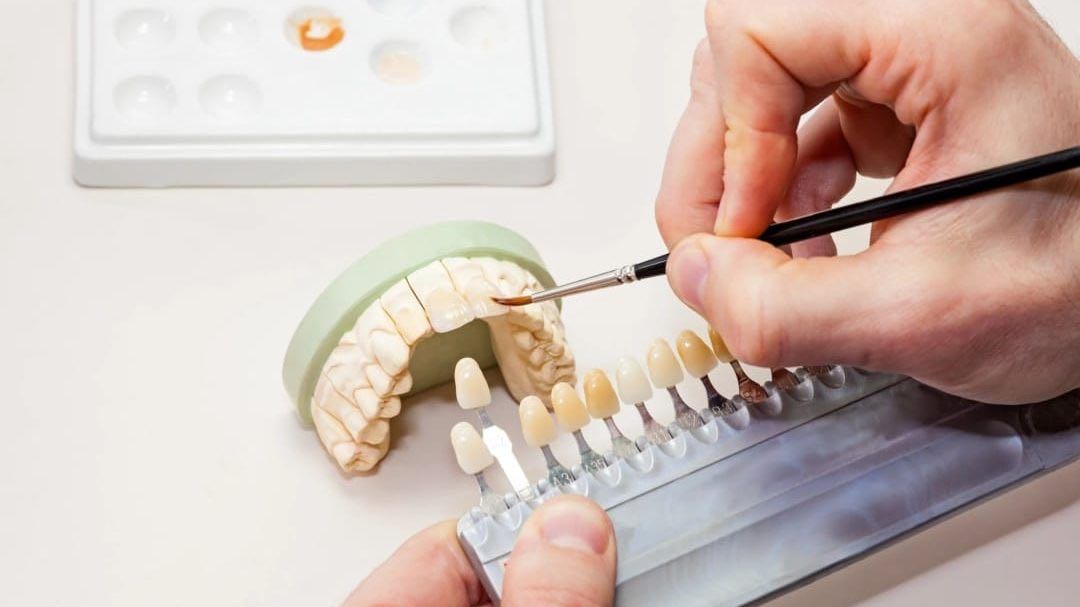Tooth decay process
Long-term tooth decay leads to holes forming in the tooth, also called a cavity. Tooth decay can be stopped and even reversed before a cavity forms. You can learn how the tooth decay process starts and how to disrupt it below.

Your mouth
Throughout the day, your mouth is plagued by tiny particles of food, drinks, and plaque. The products you ingest on a regular basis contain starch and sugar found in bread, milk, soda, and other edibles. Bacteria in our mouth produce acid when we eat these items. This acid wears away at our tooth’s hard surface, also called enamel. The minerals in saliva like phosphate and calcium combined with water and fluoride from toothpaste help repair enamel. Our teeth go through the process of regaining lost minerals all day long.
How does a cavity form?
If a tooth is exposed to acid frequently because you eat or drink sugary and starchy foods too often, your teeth start to lose more minerals than your mouth can replenish. A white spot might appear where mineral loss occurs – this is an early sign of decay. At this point, tooth decay can be reversed or stopped altogether. The enamel can be repaired through fluoride from toothpaste and your saliva. But, if the decaying continues, more minerals get lost over time. The enamel becomes weak and disintegrates, forming a cavity. Once a cavity is formed, the damage is, and a dentist can only repair it with a filling.
How can we avoid cavities?
Use fluoride
This mineral prevents teeth from decaying and can even reverse tooth decay. It prevents the loss of minerals in tooth enamel and can replace lost minerals. Fluoride can also reduce bacteria’s ability to produce acid. You can get an adequate amount of fluoride by drinking fluoridated water, which can be found in tap water. You should also brush your teeth with fluoride toothpaste. Most bottled water does not have enough fluoride to assist with preventing tooth decay. A dentist may suggest applying a fluoride gel or varnish, prescribe fluoride tablets, or recommend fluoride mouthwash if they think you need to increase your intake.
Diet
Be aware of what you eat and drink and how much you consume. Each time you devour something that is high in starches and sugars, your mouth produces acid that wears away at your teeth' enamel. It is best to:
Limit between-meal snacks to reduce the frequency of acid attacks on your teeth and give them a chance to repair.
Reserve cookies, candy, soda, and other sugary food and beverages for special occasions.
Avoid eating or drinking things with sugar in them after you brush your teeth at night. Your mouth produces less saliva as you sleep, making your teeth susceptible to acid attacks.
Sealants
Ask your dentist about sealants to avoid cavities, especially for little ones. These thin, plastic covers are painted on the chewing surfaces of the back of teeth and molars. The surface of these teeth tends to be uneven and rough with small grooves and pits, making it difficult for toothbrush bristles to brush it. Sealants form a barrier to prevent bacteria and food from getting trapped on these surfaces. These are helpful for young ones since most cavities develop in the molars of children and adolescents.
Visit your dentist regularly
- Stop by Aqua Dental to stop cavities in their tracks. During your visit, our team can:
- Remove dental plaque
- Apply fluoride varnish or gel, if needed
- Show you or your child how to clean teeth thoroughly
- Check for early signs of tooth decay
- Schedule your next checkup